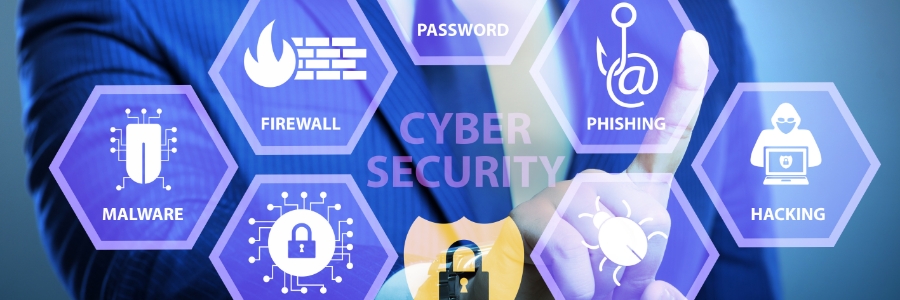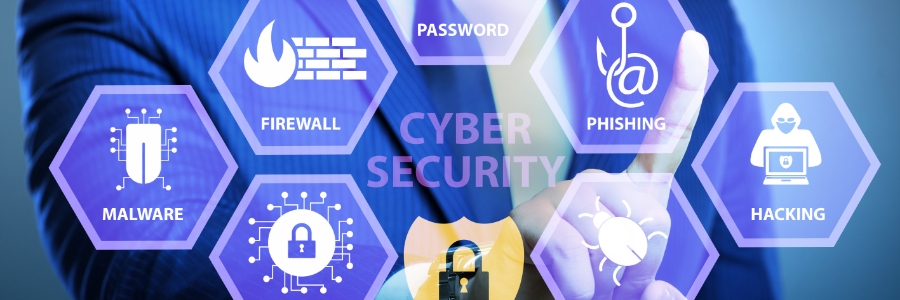
As technology advances, so do the risks associated with cyberthreats. Understanding basic cybersecurity terms is essential for business owners to protect their assets, data, and reputation. In the following sections, we’ll explore key cybersecurity terms and concepts that every business owner should be familiar with.
Malware
Malware is short for malicious software and encompasses various harmful programs designed to disrupt computer systems, steal data, or gain unauthorized access to a network. Types of malware include viruses, ransomware, Trojans, and spyware. Employing robust antivirus and anti-malware solutions is crucial to detect and mitigate these threats.
Phishing
Phishing is a cyberattack where malicious actors attempt to trick individuals into revealing sensitive information, such as passwords, credit card details, or login credentials. Phishing attacks often come through deceptive emails, spam messages, or websites that appear legitimate. Business owners must educate their employees about the dangers of phishing and promote a culture of vigilance when dealing with suspicious communications.
Firewall
A firewall is a network security solution that acts as a barrier between a company’s internal network and external networks such as the internet. It constantly scans and controls traffic coming in and out of a network using predetermined rules. These security rules help prevent unauthorized access to a system and keep potential cyberthreats at bay.
Encryption
Encryption is a method of converting plain, readable data into an unreadable format called ciphertext. It is used to protect sensitive information and maintain confidentiality during data transmission or storage. Even if the data is intercepted, the information will be unreadable without the correct decryption key.
Multifactor authentication (MFA)
MFA is a security mechanism that enhances the protection of user accounts and sensitive information by requiring users to provide multiple forms of identification or “factors” such as passwords, biometrics, and one-time codes to verify their identity. The goal of MFA is to add an extra layer of security beyond just a username and password.
Patch management
Hackers often exploit vulnerabilities in networks and applications to gain unauthorized access to an organization’s system. Patch management involves regularly updating and applying security patches to software, operating systems, and applications to close these vulnerabilities and protect businesses from potential breaches.
Data breach
A data breach occurs when unauthorized individuals gain access to sensitive information, such as customer data, financial records, or intellectual property. Data breaches can have severe consequences, including financial losses, legal repercussions, and reputational damage. Implementing robust security measures can help minimize the risk of data breaches.
Security awareness training
Security awareness training educates employees about potential cybersecurity threats and best practices to help them recognize and respond to such threats effectively.
Virtual private network (VPN)
A VPN is a software or platform that helps establish a secure and encrypted connection between a user’s device and a remote server. Using a VPN especially when connected to public Wi-Fi networks will ensure privacy and data protection.
Insider threat
An insider threat is a current or former employee, contractor, or business partner who intentionally or accidentally misuses their authorized access to compromise data security.
Security audit
A security audit is a systematic evaluation of an organization’s security policies, practices, and controls to identify potential vulnerabilities and improve overall security.
Cybersecurity is an ongoing process, and staying informed about the latest threats and solutions is essential to keep your business safe in the digital age. Protect your assets, safeguard your customers, and maintain your reputation by talking to our cybersecurity experts today.


